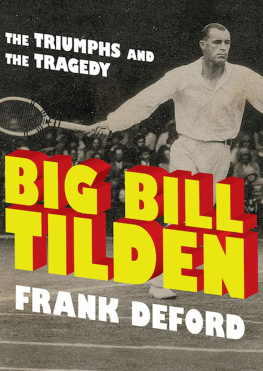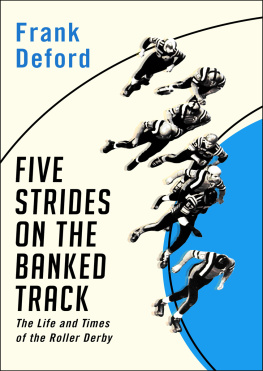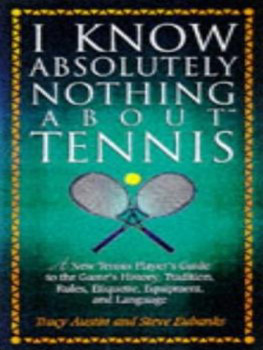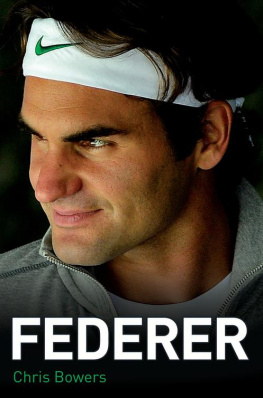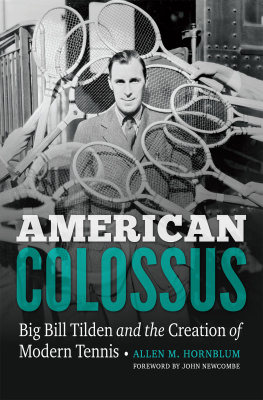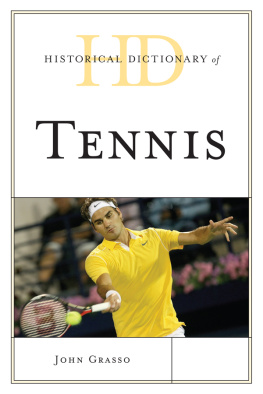Big Bill Tilden
The Triumphs and the Tragedy
Frank Deford

For Andr Laguerre
Foreword
When this book about Big Bill Tilden was originally printed in 1976 there was an immediate, largely positive, response. The movie rights had been sold the year before, as soon as the first installment of the magazine series appeared in Sports Illustrated. The homosexual population was delighted to be reminded of what had generally been forgotten, that a great sports champion had been gay. The widespread assessment of Tilden was that of sympathy for his travails and respect for his achievement (and the extraordinary devotion that had made that possible).
Rather quickly, though, this first blush of favor grew muted. Gays in particular backed away from celebrating a man whose homosexual orientation was so tarnished by his pedophilia. I can certainly understand that, although I think the vast preponderance of evidence posits Tilden as less a predator and more as a desperately lonely and confused man. His teen-age companions often seemed to take more advantage of the old fellow than he did they. I frankly dont think he had the guts or the ethics, either, to prey on young innocents.
Notwithstanding, I think that most people who read his story come away with a certain admiration for this strange man. The people in tennis who had so feared that Tildens personal reputation tarnished the sport he had conquered tended to welcome his name back into the fold. No, nobody has ever further recognized William T. Tilden in any official manner, but he is not the outcast he was before I wrote his biography.
Efforts to make a film of his life have been numerous... and continuous. Rarely do many months go by before I receive another enthusiastic query. All attempts to make a Tilden film, though, founder on the issue of his interest in young boys. Writers (including me) have been anxious to write his screenplay; actors, including some big names, have been anxious to portray him. Alas, nobody has ever been prepared to put up the money to finance a film about a hero (or even an anti-hero) who is a sexual deviant. (One of the most bizarre attempts to somehow work around the issue involved a screenwriter who took a fleeting mention in the book of one evening that Tilden and Talullah Bankhead spent on a casual double-date and catapulted that into some sort of a Big Bill & Talullah adventure. Dont ask.)
Frankly, I suspect that with the recent massive man-boy scandal in the Roman Catholic Church there is even less of a chance for a Tilden film production now. A.R. Gurney, the reknowed playwright, has written a play about Tilden which is scheduled to be presented in New York in 2004. Perhaps Tilden is a better subject for the stage, which can, successfully, provide a less literal environment than the screen.
Im often asked if Tilden would be more open about his sexual life were he in his prime today instead of eighty years ago. Certainly, this is a much more blas and tolerant world nowadays in matters of homosexuality, but remember: Tilden was only incidentally gay. He had no adult lovers. His interest was in adolescent boys. If anything, in fact, I think Tilden would have a tougher go of it today. When he was alive there was more of a tendency for the general population to both lump and dismiss all homosexuality as perversion. Today, many more people accept adult homosexuality, even as they remain repulsed by grownupsboth homo- and heterosexualwho attempt to seduce adolescents. Tilden would have been hard-pressed to carry on his secret way of life todayespecially in a world where celebrities private lives are much more scrutinized by a prying press.
And then, more simply, even now virtually no gay male athletes choose to reveal their homosexuality. Tilden would have surely worked just as hard to conceal his true self; I believe that he would have been no less tormented.
And, in a way, the same for Tilden the tennis player: he would be the same great champion today. Give him those oversized synthetic rackets in use nowadays, and he would be rocketing 150-mph serves. He was an all-court, all-surface player, much more likely to be able to win the Grand Slam than any modern star. If anything, hed be even more dominant on a multitude of surfaces than on the primarily grass-court world he ruled. Moreover, he enjoyed travel, and so todays international game would appeal to him all the moreso. He would have reveled in the television spotlight and the greater attention athletes enjoy today. (Retired, he would go straight to the commentary booth and make a perfectly wonderful foil for John McEnroe.)
Moreover, unlike other of his contemporary starssay, Jack Dempsey in boxing or Red Grange in footballTilden would not have to confront larger, stronger modern athletes. No, he would not be Big Bill were he playing in the twenty-first century, but at well over six-feet, he would still be bigger than most of his rivals. Indeed, adjusting for the inflation of humans, Bill Tilden today would probably be six-five, 190, lean and muscled. He wouldnt smoke, would have taken up weights and all manner of sophisticated conditioning, and would, in fact, probably be as boring and overbearing about his health as would the 1920s Tilden hold forth smugly on those subjects that mattered to him back then.
As a person and as a champion, Bill Tilden was sui generis. Time and place, I believe, were incidental to such a character and such a talent.
Frank Deford
Westport, Connecticut,
November 21, 2003
Part One
Chapter One
Ill play my own sweet game
WITH ANY ARTIST WHO ATTAINS the ultimate in his craft, there must be one moment, an instant, when genius is first realized, when a confluence of Gods natural gifts at last swirl together with the full powers of endeavor and devotion in the man to bear him to greatness. Virtually always, of course, that moment cannot be perceived, and it passes unnoticed, but with Big Bill Tilden it was isolated, forever frozen in time. He knew precisely when he had arrived, and, thoughtfully, he revealed it.
This happened on Centre Court at Wimbledon in 1920. Tilden was already twenty-seven, and although he had never won a major championship, he had reached the finals. It was his first trip abroad, and to his delight the British, unlike his own countrymen, had taken to him right away. Americans always only grudgingly granted Tilden recognition, never mind respect, largely because they were emotionally hung up on Big Bills main rival, Bill Johnston, who was affectionately known as Little Bill, or even, in the soupiest moments, Wee Willie Winkie. Johnston was five feet eight, a wonderful cute doll-person from the California middle class, and all Americans (Tilden prominently included) were absolutely nuts about him: the little underdog with the big heart who cut larger fellows down to size.
By contrast, at six feet one and a half inches tall, 155 pounds, angular and overbearing, a Philadelphia patrician of intellectual pretension, Big Bill was the perfect foil for Little Bill, and the great American villain. Until 1920 he had also cooperated by remaining a loser with a healthy reputation for choking in important matches. The year before, in the finals at Forest Hills, Johnston had defeated Tilden in straight sets, and so it was assumed that Wimbledon would serve as the stage where Johnston, the American champion, would duel Gerald Patterson, the Wimbledon defender, for the undisputed championship of the world.

